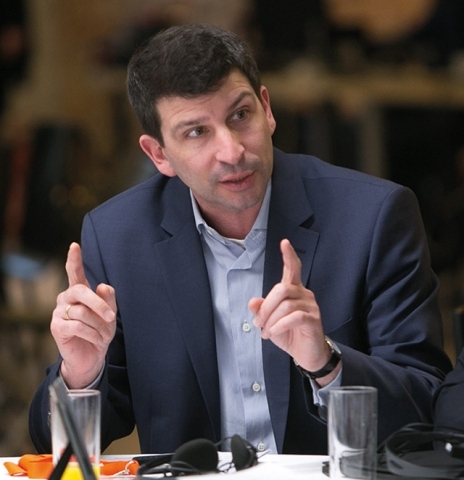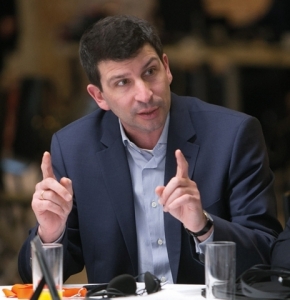Austria and Georgia – a Promising Partnership on the European Market
OP-ED by Austrian Ambassador to Georgia, Arad Benkö
Austrian-Georgian relations go way back to the times when Austria was still a monarchy. In the late 19th century Georgia was a transit country for oil from the Caspian Sea towards the Black Sea and about 200 Austro-Hungarian citizens settled in Tbilisi and Batumi. One of the settlers that had nothing to do with oil was a writer and peace activist, Bertha von Suttner. She stayed for nine years in Georgia and the experiences she made during the Ottoman-Russian war led her to become a pacifist. She won the Noble Peace Price in 1905!
During the Soviet Union era our bilateral relations were mostly of a cultural nature and reflected that both countries are small in size but big in the world of culture and art.
In 2016 we opened the Embassy for various reasons. On the one hand we had witnessed a strong increase of bilateral activities from development aid, cultural and scientific corporation, coordination in police matters as well as in the business sector. On the other hand Georgia had signed an Association Agreement with the EU and made significant progress in her rapprochement towards Europe including visa liberalization. We support this process of Georgia getting closer to the EU both politically and via our development aid.
What we – like our partners in the EU – try to support in Georgia is not only the transformation in the agricultural or forestry sector, two of the three priorities of the Austrian Development Cooperation. Good governance, rule of law, a resilient and trustable justice sector and social standards are key to make this country a reliable partner for Europe and attractive for investments. Therefore Austria is engaged in all these areas. There are some areas which might not seem to be important at a first glance but are nevertheless crucial in our opinion: We firmly believe that the empowerment of women to take more part in the economy, in politics and other fields is key for the exploitation of Georgia´s full potential. And we also believe that the principle of subsidiarity and regionalization will help Georgia to achieve faster progress in fighting unemployment and improve the health sector.
Austria´s economic presence in Georgia is mostly concentrated in logistics and energy. The most important investors transport goods from Europe via Tbilisi to the South Caucasus and beyond, making Georgia the hub in the region. Many hydro power stations include Austrian technology or are being financed by Austrian banks or private investors. Furthermore Austrians are active in the fruit juice sector and tourism industry with an obvious focus on skilifts. Of course every Georgian knows that the first western-style hotels in Tbilisi (the Metekhi) and Gudauri (Marco Polo) were Austrian investments… A considerable part of the investments are linked to development programmes and soft loans. So when there is less money in this system also our investment drops as we can see in the statistics. After a very successful year 2018 with an impressive growth from Euro 55m to Euro 96m in our trade balance we have seen a decline in 2019 back to 73m. Still we feel that Georgia remains a very attractive country and Austrian companies are increasingly interested in making business here.
Of course, the Corona crisis represents a shock to the global economy. Georgia – like other countries –suffers a lot in terms of a sharp short-term decline of tourism, reduction of investment and remittances.
The government is in the difficult situation to navigate the economy in pre-election times and with the permanent threat of new outbreaks of the virus.
With unemployment inevitable rising in the next months to come there have been a lot of discussions about investment in education and vocational training. And indeed I believe this is key for the long-term development of the Georgian labour force. Sure: Establishing Georgia as regional hub and deepen cooperation with other countries makes sense for a small country. But in my opinion, without investing more in the workforce´s qualifications Georgia might not be able to attract larger-scale investors. They expect a safe political environment, a reliable and transparent legal framework and attractive business conditions. It is promising that Georgia has started to make its public administration more efficient. Continuity and sustainability are highly important assets to make the State a reliable partner for citizens.
In general I believe that Georgia is on the right track to democracy and free market. With a strong voice of civil society and a political class that listens, with the respect of European standards of human rights and rule of law Georgia has very good chances to succeed.
Originally printed in The Economist-Georgia











